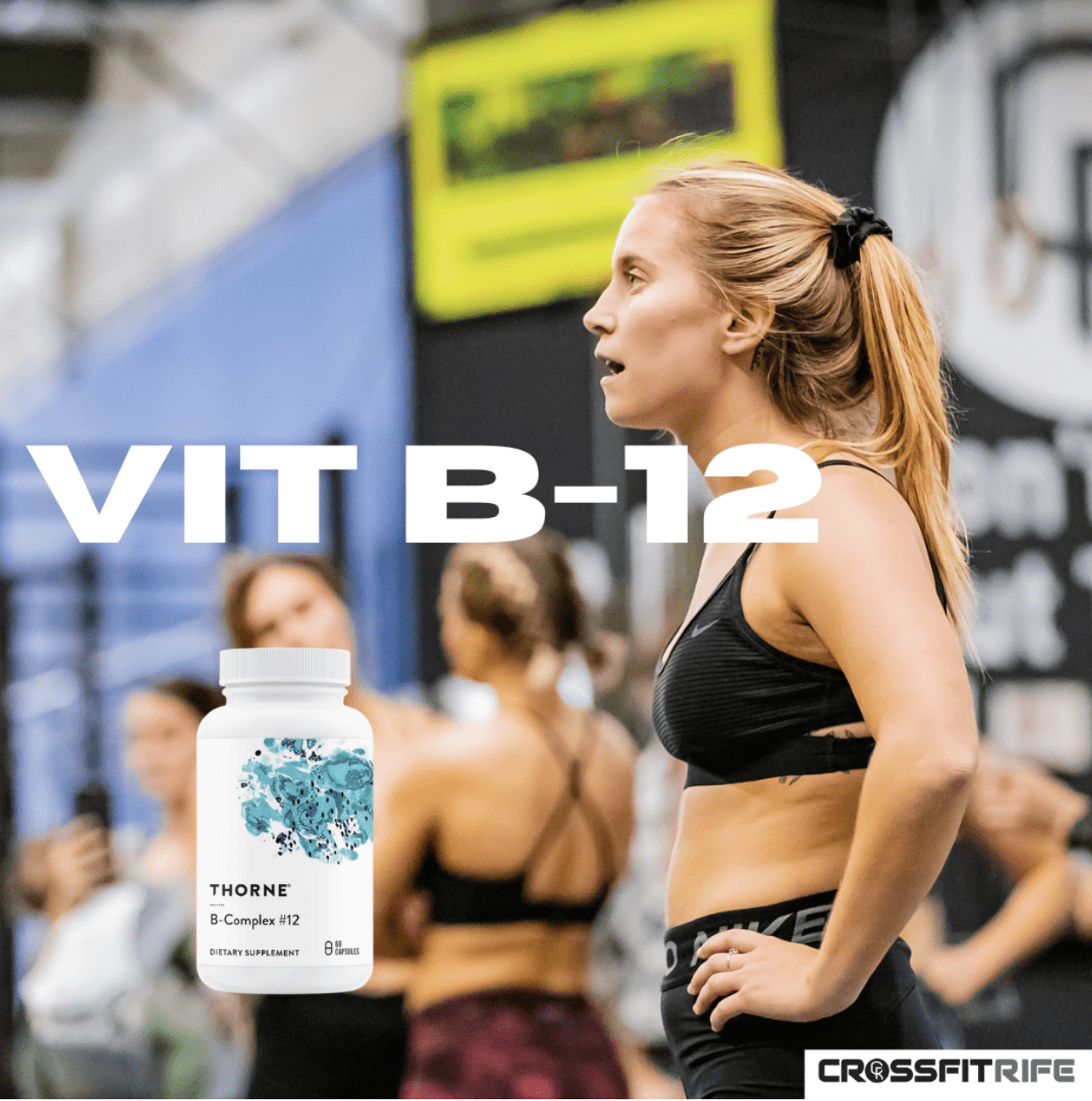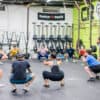As a CrossFit athlete, you know the importance of fueling your body with the nutrients it needs to perform at its best. One essential nutrient that often gets overlooked is vitamin B12.
What is vitamin B12 and why is it important?
Vitamin B12 is a water-soluble nutrient that plays a crucial role in many functions in the body. It is involved in the production of red blood cells, the maintenance of the nervous system, and the metabolism of carbohydrates, fats, and proteins. B12 is also necessary for the synthesis of DNA and the production of neurotransmitters, which transmit signals in the brain. Turns out DNA is important…..
B12 is found naturally in animal products, including meat, fish, poultry, eggs, and milk. It is also available in fortified foods and supplements. People who follow a vegan or vegetarian diet may be at risk for a B12 deficiency because they do not consume animal products. Elderly people and those with certain medical conditions, such as inflammatory bowel disease or pernicious anemia, may also be at risk for a deficiency. This is one of the many reasons a whole food diet is a staple in the CrossFit prescription.
Symptoms of B12 Deficiency
Symptoms of a B12 deficiency include fatigue, weakness, constipation, loss of appetite, weight loss, numbness or tingling in the hands and feet, and problems with balance. A deficiency can also cause anemia, which is a condition in which the body does not have enough red blood cells to carry oxygen to the body’s tissues. While wightloss might be a goal for many people, this is NOT the way to go about it. Weightloss minus negative side effects is the ultimate goal.
Why is B12 important for CrossFit athletes?
As a CrossFit athlete, you rely on your body to perform at its best during intense workouts. Ensuring that you are getting enough B12 can help you maintain energy levels, support a healthy nervous system, and maintain a healthy metabolism.
In addition, B12 is important for the production of red blood cells, which are essential for carrying oxygen to your muscles during exercise. Without sufficient B12, you may experience fatigue and decreased performance.
How to get enough B12?
If you follow a vegan or vegetarian diet, it is important to make sure you are getting enough B12 through fortified foods or supplements. Animal products are the best source of B12, but if you choose not to consume these, it is important to speak with a healthcare provider or a registered dietitian, we can introduce you to ours ;-), to ensure you are getting enough of this essential nutrient.
If you are concerned about your B12 intake or if you are experiencing any of the symptoms listed above, it is important to speak with a healthcare provider. They can help determine if you are at risk for a deficiency and recommend the best course of action to ensure you are getting enough B12. This is pretty easily determined through blood work that you can get from your primary care provider or one of the many private services that do this.
Combining Different supplements
Incorporating additional supplements to your B12 regime can help enhance your overall fitness and athletic performance. Whether you’re a seasoned crossfit athlete or just starting out, adding these complementary supplements to your routine can help you achieve your fitness goals more effectively. From improving muscle strength and endurance to reducing muscle damage and supporting joint health, each of these supplements has its own unique benefits that can help take your fitness routine to the next level.
There are several supplements that can complement B12 for crossfit athletes. Here are a few commonly used supplements:
- Creatine: Creatine is a popular supplement among athletes and bodybuilders as it helps improve muscle strength, power and endurance.
- Beta Alanine: Beta alanine is a non-essential amino acid that helps increase muscle endurance and delay fatigue during intense exercise.
- Branched-Chain Amino Acids (BCAAs): BCAAs help reduce muscle damage and support muscle growth and repair.
- Protein Powder: Crossfit athletes have increased protein needs due to the high-intensity nature of their workouts, and protein powder can help support muscle growth and repair.
- Fish Oil: Fish oil is a rich source of Omega-3 fatty acids which have anti-inflammatory effects and support joint health.
Final round, vitamin B12 is an essential nutrient for CrossFit athletes and should not be overlooked. Ensuring that you are getting enough B12 can help support a healthy nervous system, maintain energy levels, and support a healthy metabolism. If you are concerned about your B12 intake, let us know and we can point you towards the appropriate resource.






